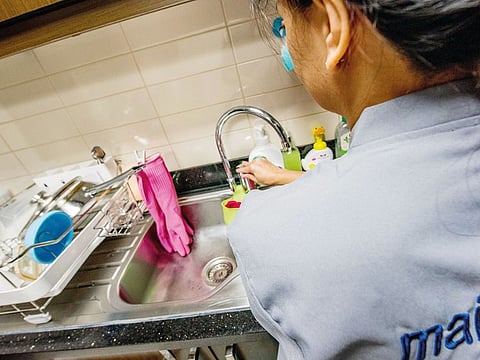Saudi Arabia: New regulations for domestic worker rights unveiled
Mistreatment of domestic workers could result in hefty fines, recruitment ban

Dubai: The Saudi Ministry of Human Resources and Social Development has issued new regulations to safeguard the rights of domestic workers and their employers.
These rules, set to be effective shortly, could see employers fined up to SR2000 and face a one-year recruitment ban if found guilty of mistreating domestic workers. Additionally, the regulations also outline potential penalties for workers who disclose their employer’s ‘secrets’.
Should a domestic worker violate these regulations, a fine not exceeding SR2,000 could be imposed, along with a permanent working ban in the Kingdom.
If multiple violations occur, the worker will bear the cost of return to their home country. If the domestic worker can’t afford to pay the fines, the state will cover their repatriation expenses.
Fines collected will be transferred to a bank account, from where they will be disbursed for the accommodation and deportation of domestic workers.
This process will follow a mechanism approved by the Minister of Human Resources and Social Development.
The regulations emphasise that the domestic worker must adhere to their agreed-upon work to avoid fines and deportation. They must also respect their employer’s property, not harm family members, and maintain the confidentiality of any information about their employer and family that they learn during their employment.
Employers who violate the regulations face a fine not exceeding SR2,000, a one-year recruitment ban, or both. Repeated violations increase the fine to a range of SR2,000 to SR5,000 and could result in a recruitment ban of up to three years. A third offence might lead to a permanent ban on recruitment.
The regulations also require employers to not assign workers tasks beyond those agreed upon, unless necessary. The worker should be paid the agreed-upon wage monthly in cash, check or transferred to their bank account, and should receive no less than 9 hours of rest daily.
These punitive measures are in line with article 7 of the Labor Law, which seeks to ensure that domestic workers aren’t assigned any work that endangers their health, safety or human dignity.
Sign up for the Daily Briefing
Get the latest news and updates straight to your inbox



